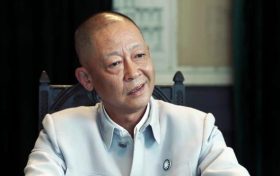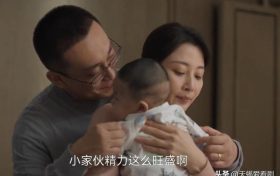 |
 |
《监察》全集百度云网盘最新电影免费观看阿里云盘高清在线播放
https://pan.baidu.com/s/kFTgQytgthUnAtplvYSWDD6
Given that the home and workplace are two of the most common domains in modern life, it is unsurprising that family dramas and workplace dramas are among the most popular genres in television worldwide. Workplace dramas typically follow one of two approaches: a detailed and professional depiction of a specific industry, or a more generic setting where the workplace merely serves as a backdrop for various narratives. The latter has become more prevalent in recent Chinese productions, but these often lack depth and have received criticism from audiences.
《Inspection》poster
The recently popular South Korean drama, Inspection, offers an innovative blend of both approaches, garnering favorable reviews and solid viewership ratings. This creative synthesis could provide valuable insights for domestic workplace dramas.
A Blend of Genres and Expansion of Formats
Inspection centers around the Inspection Department of JU Construction, a building company. Under the guidance of a new team leader, the department tackles various issues to ensure the company's smooth operation. By focusing on this unique department, the series captures the intrigue of an unfamiliar corporate function, piquing viewer interest from the outset.
As the Inspection Department monitors internal corruption and misconduct, the series employs methods similar to those found in criminal investigation dramas. Set within a construction company, the narrative delves into industry-specific issues like graft during construction projects, as well as more general problems like hiring malpractices and workplace bullying. Through each resolved case, the company's integrity and employees' rights are protected, creating a compelling blend of familiar and novel experiences.
Contrasts and Conflicts in Narrative
The integration of genres provides a strong foundation, but engaging storytelling is key to maintaining audience interest beyond initial novelty. Inspection achieves this by creating stark contrasts and conflicts throughout its narrative.
The series extends the crime investigation genre through the lens of a corporate inspection department, which lacks legal authority compared to government enforcement agencies. This unique setup introduces additional layers of conflict within the shared interests of the company, distinguishing it from typical crime dramas.
Beyond the obvious contrasts, the series also crafts nuanced conflicts between characters. For example, the contrast between the seasoned and detached team leader and the warm-hearted yet inexperienced team member, as well as the clash between the brash vice president and the refined president, who happen to be half-brothers. These contrasts enrich the narrative, adding depth to the characters and their interactions.
Deepening and Elevating Themes
While a well-crafted story can secure commercial success, a deeper exploration of themes can elevate a series to resonate with audiences on a more profound level. Inspection makes efforts in this direction.
Most dramas involving criminal activity naturally divide characters into good and evil. However, Inspection emphasizes character development and ethical dilemmas within the Inspection Department. The series delves into the personal lives and motivations of its characters, illustrating how their backgrounds influence their professional behavior.
The young team member, portrayed by Lee Jung-jae, comes from a loving family and harbors an idealistic view of human relationships. His enthusiasm is countered by the experienced team leader, played by Shin Ha-kyun, who is cold and pragmatic, possibly due to past traumas. These character dynamics encourage viewers to reflect on how personal experiences shape professional conduct.
Despite some flaws, such as overly rigid characterizations and occasional forced idealism, Inspection's innovative approach to blending genres, crafting compelling stories, and exploring deeper themes offers valuable lessons for Chinese workplace dramas. Hopefully, these insights will inspire creators to produce more thoughtful and engaging domestic workplace dramas.
(Lü Peng, Research Fellow at the Shanghai Academy of Social Sciences Institute of Journalism, Director of the Film and Television Culture and Audiovisual Communication Research Center)
![《鉴证实录》迅雷BT资源下载种子下载[HD-1280P超清]百度云资源下载缩略图 《鉴证实录》迅雷BT资源下载种子下载[HD-1280P超清]百度云资源下载缩略图](https://marvel.duanziya.com/wp-content/uploads/2024/10/20241004_66ffdf9ab21ee-280x176.jpg)



![《流水迢迢》百度云网盘[MP41080P]阿里云盘资源下载缩略图 《流水迢迢》百度云网盘[MP41080P]阿里云盘资源下载缩略图](https://marvel.duanziya.com/wp-content/uploads/2024/10/20241004_66ff7cb3526a5-280x176.jpg)
